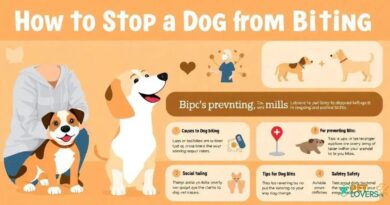What is frequent dog obesity tests
Understanding Frequent Dog Obesity Tests
Frequent dog obesity tests are essential tools used by veterinarians and pet owners to assess the weight and overall health of dogs. These tests help identify whether a dog is overweight or obese, which can lead to various health issues, including diabetes, heart disease, and joint problems. Regular assessments can guide dietary and exercise recommendations, ensuring your furry friend maintains a healthy weight.
The Importance of Regular Weight Monitoring
Monitoring a dog’s weight regularly is crucial for early detection of obesity. Vets recommend weighing your dog at least once a month, especially for breeds prone to weight gain. Frequent dog obesity tests can involve simple methods like using a scale or more advanced techniques like body condition scoring. This proactive approach helps in making timely adjustments to a dog’s diet and exercise routine.
Common Methods for Assessing Dog Obesity
There are several methods to assess dog obesity, including visual assessments, body condition scoring (BCS), and weight measurements. Visual assessments involve observing the dog’s shape and size, while BCS uses a scale from 1 to 9 to categorize a dog’s body fat. Weight measurements, on the other hand, provide a quantitative approach to understanding a dog’s health status. Each method has its advantages and can be used in conjunction to get a comprehensive view of a dog’s weight.
Veterinary Assessments and Their Role
Veterinary assessments play a pivotal role in frequent dog obesity tests. Veterinarians can provide professional evaluations and recommend personalized weight management plans. They may also conduct additional tests, such as blood work, to rule out underlying health issues contributing to weight gain. Regular vet visits ensure that any weight-related concerns are addressed promptly and effectively.
At-Home Weight Management Techniques
Pet owners can implement various at-home techniques to manage their dog’s weight effectively. Keeping a food diary, measuring food portions, and ensuring regular exercise are vital components of a successful weight management plan. Engaging in interactive play and walks can help burn calories and maintain a healthy weight. Frequent dog obesity tests at home can also include monitoring changes in body shape and energy levels.
Understanding the Risks of Obesity in Dogs
Obesity in dogs can lead to numerous health complications, including arthritis, respiratory issues, and decreased lifespan. Understanding these risks is crucial for pet owners. Frequent dog obesity tests can help mitigate these risks by identifying weight issues early on. By being proactive, owners can significantly improve their dog’s quality of life and longevity.
Dietary Considerations for Weight Management
Diet plays a significant role in managing a dog’s weight. Frequent dog obesity tests can guide dietary changes, such as switching to lower-calorie dog food or adjusting portion sizes. Consulting with a veterinarian about the best dietary options is essential for ensuring that your dog receives the necessary nutrients while maintaining a healthy weight.
The Role of Exercise in Preventing Obesity
Regular exercise is a critical factor in preventing obesity in dogs. Frequent dog obesity tests can help determine if a dog is getting enough physical activity. Activities like walking, playing fetch, and agility training not only help burn calories but also strengthen the bond between the dog and its owner. Establishing a routine that incorporates daily exercise is vital for maintaining a healthy weight.
Behavioral Factors Influencing Dog Obesity
Behavioral factors can significantly influence a dog’s weight. Overfeeding, lack of exercise, and even boredom can contribute to obesity. Frequent dog obesity tests can help identify these behavioral patterns, allowing owners to make necessary changes. Understanding a dog’s behavior and lifestyle is crucial for effective weight management and overall health.
Seeking Professional Help for Obesity Issues
If a dog is found to be overweight or obese through frequent dog obesity tests, seeking professional help is essential. Veterinarians can provide tailored weight loss programs, including dietary adjustments and exercise plans. They can also monitor progress and make necessary changes to ensure the dog’s health improves. Professional guidance is invaluable in managing obesity and promoting a healthier lifestyle for dogs.




